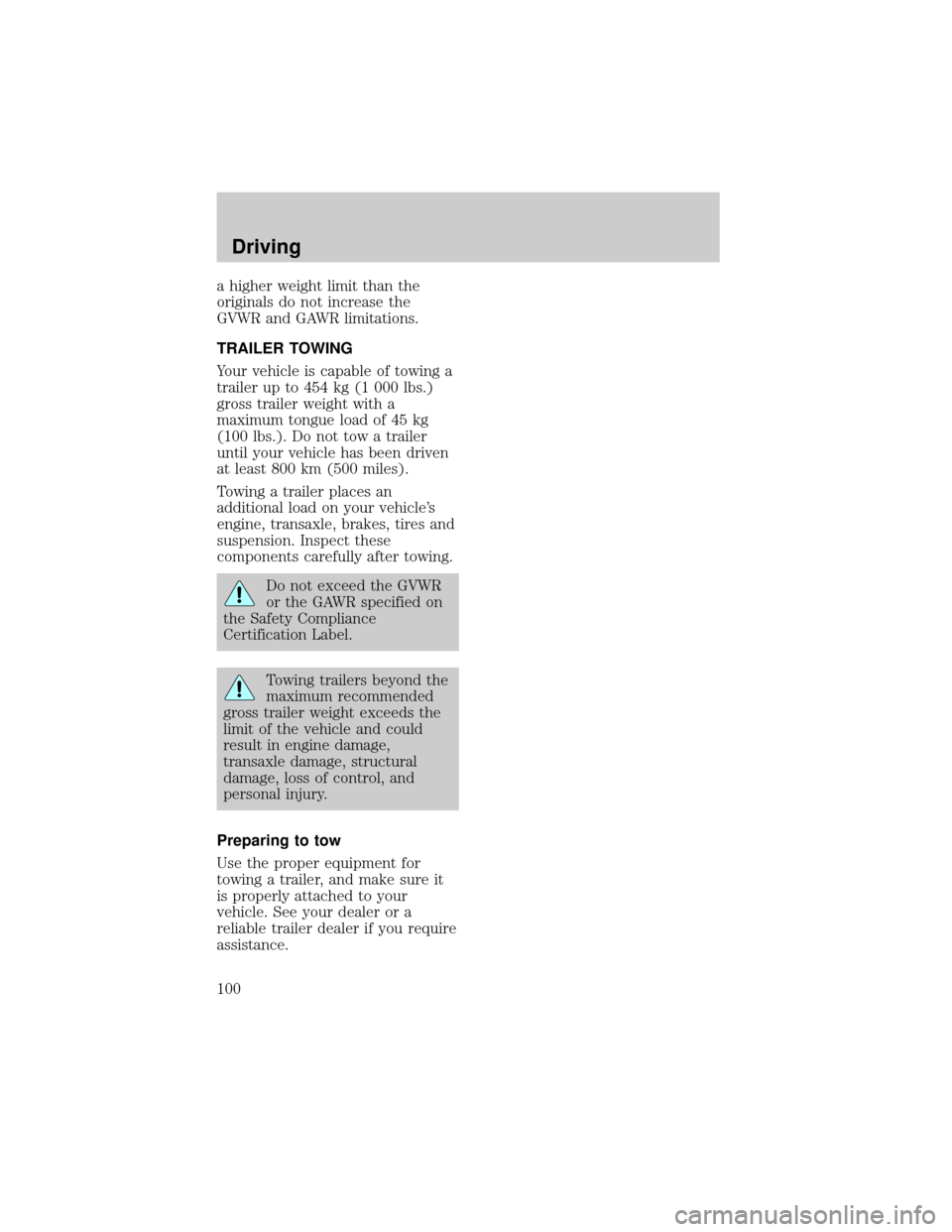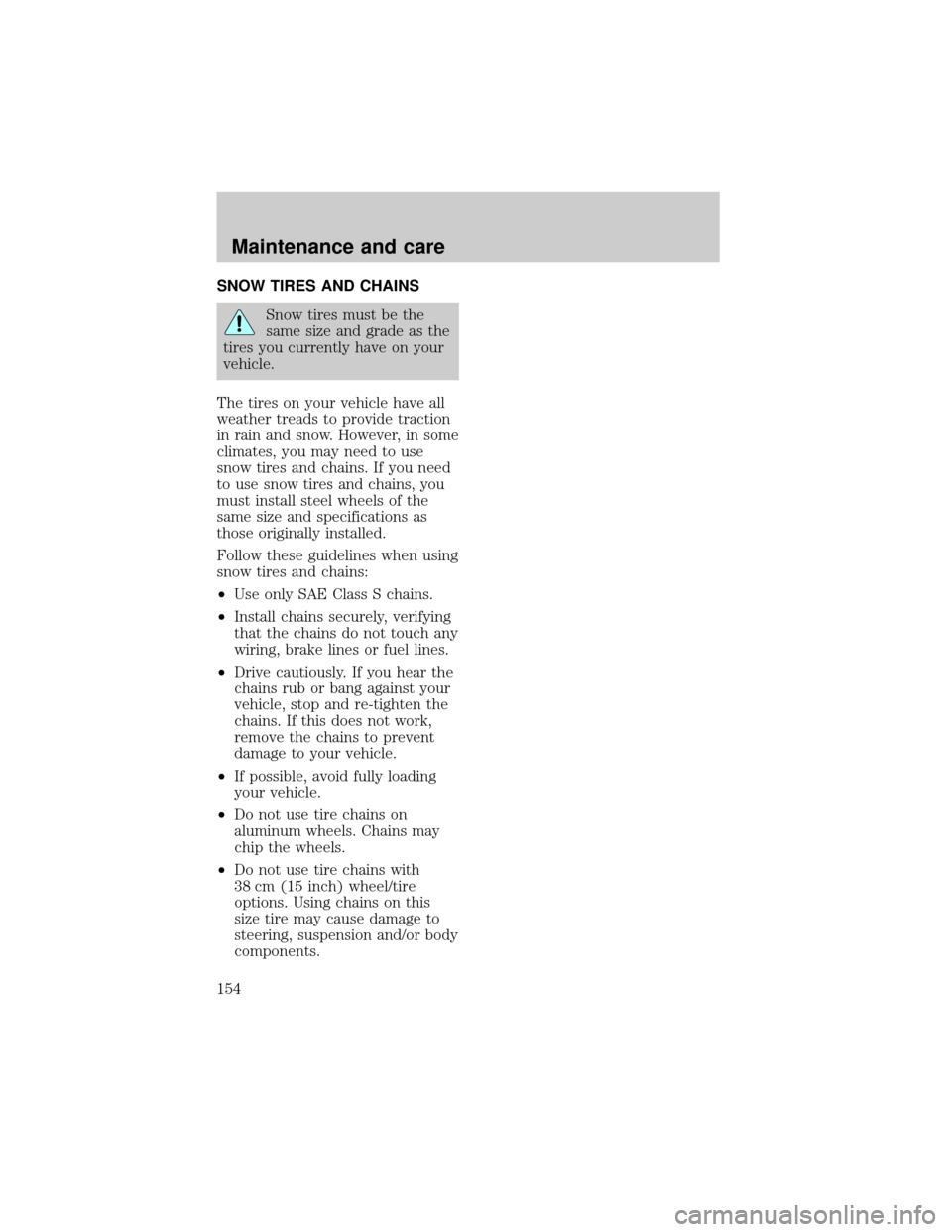Page 100 of 191

a higher weight limit than the
originals do not increase the
GVWR and GAWR limitations.
TRAILER TOWING
Your vehicle is capable of towing a
trailer up to 454 kg (1 000 lbs.)
gross trailer weight with a
maximum tongue load of 45 kg
(100 lbs.). Do not tow a trailer
until your vehicle has been driven
at least 800 km (500 miles).
Towing a trailer places an
additional load on your vehicle's
engine, transaxle, brakes, tires and
suspension. Inspect these
components carefully after towing.
Do not exceed the GVWR
or the GAWR specified on
the Safety Compliance
Certification Label.
Towing trailers beyond the
maximum recommended
gross trailer weight exceeds the
limit of the vehicle and could
result in engine damage,
transaxle damage, structural
damage, loss of control, and
personal injury.
Preparing to tow
Use the proper equipment for
towing a trailer, and make sure it
is properly attached to your
vehicle. See your dealer or a
reliable trailer dealer if you require
assistance.
Driving
100
Page 154 of 191

SNOW TIRES AND CHAINS
Snow tires must be the
same size and grade as the
tires you currently have on your
vehicle.
The tires on your vehicle have all
weather treads to provide traction
in rain and snow. However, in some
climates, you may need to use
snow tires and chains. If you need
to use snow tires and chains, you
must install steel wheels of the
same size and specifications as
those originally installed.
Follow these guidelines when using
snow tires and chains:
²Use only SAE Class S chains.
²Install chains securely, verifying
that the chains do not touch any
wiring, brake lines or fuel lines.
²Drive cautiously. If you hear the
chains rub or bang against your
vehicle, stop and re-tighten the
chains. If this does not work,
remove the chains to prevent
damage to your vehicle.
²If possible, avoid fully loading
your vehicle.
²Do not use tire chains on
aluminum wheels. Chains may
chip the wheels.
²Do not use tire chains with
38 cm (15 inch) wheel/tire
options. Using chains on this
size tire may cause damage to
steering, suspension and/or body
components.
Maintenance and care
154
Page 155 of 191
²Remove the tire chains when
they are no longer needed. Do
not use tire chains on dry roads.
²The suspension insulation and
bumpers will help prevent
vehicle damage. Do not remove
these components from your
vehicle when using snow tires
and chains.
WHAT YOU SHOULD KNOW
ABOUT AUTOMOTIVE FUELS
Important safety precautions
Do not overfill the fuel
tank. The pressure in an
overfilled tank may cause
leakage and lead to fuel spray
and fire.
If you do not use the
proper fuel cap, the
pressure in the fuel tank can
damage the fuel system or cause
it to work improperly in a
collision.
The fuel system may be
under pressure. If the fuel
cap is venting vapor or if you
hear a hissing sound, wait until it
stops before completely
removing the cap.
Automotive fuels can
cause serious injury or
death if misused or mishandled.
Maintenance and care
155